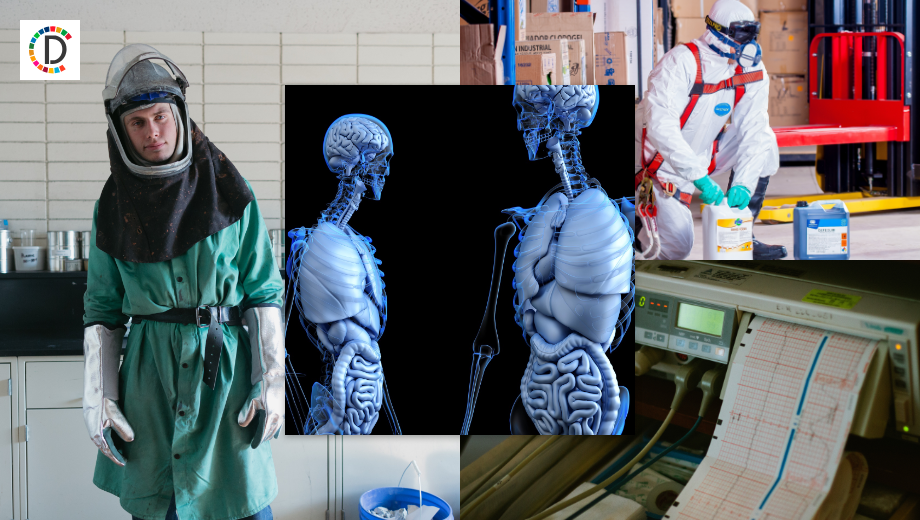Thousands of migrants camp under Texas bridge, food scarce
He was leaving a migrant encampment in Del Rio, Texas, on Thursday to slip back into Mexico’s Ciudad Acuña to buy water and food — for the fourth time, he said, since arriving in the United States on Monday morning. Reuters witnessed hundreds of other migrants, mostly Haitians but also Cubans, Venezuelans and Nicaraguans, wading through the Rio Grande and back into Mexico to stock up on essentials they say they are not receiving on the American side.

Ernesto, a 31-year-old Haitian migrant, waded knee-deep through the Rio Grande river that separates the United States and Mexico. He was not heading to the United States, though. He was leaving a migrant encampment in Del Rio, Texas, on Thursday to slip back into Mexico's Ciudad Acuña to buy water and food — for the fourth time, he said, since arriving in the United States on Monday morning.
Reuters witnessed hundreds of other migrants, mostly Haitians but also Cubans, Venezuelans and Nicaraguans, wading through the Rio Grande and back into Mexico to stock up on essentials they say they are not receiving on the American side. Customs and Border Protection (CBP) did not respond to questions about the number of people in the Del Rio camp. One CBP agent told Reuters on Wednesday that around 6,000 people were in the camp. Reuters journalists estimated they saw at least 1,000 people on the river's two shores.
The squalid conditions are reflective of the latest border emergency facing President Joe Biden - who promised a more humane approach to immigration policy -- as border arrests hover around twenty year highs. U.S. authorities arrested https://www.reuters.com/world/us/us-arrests-nearly-200000-migrants-us-mexico-border-august-2021-09-15 more than 195,000 migrants at the Mexican border in August, according to government data released on Wednesday. Ernesto, who declined to give his surname to protect his identity, has been waiting in an overwhelmed makeshift migrant camp under the bridge connecting Del Rio and Ciudad Acuña. He said he had not been fed at the camp, where migrants are sleeping under the International Bridge and jostling for shade in 99 degree Fahrenheit (37 degree Celsius ) temperatures.
Although he was initially scared to cross back into Mexico, he was compelled to do so to feed his 3-year-old daughter. "I've been crossing once a day," said Ernesto, who wants to claim asylum. Sometimes, he said he runs to avoid Mexican migration officials but is usually not bothered by them. "But now money is running out."
Around 20 migrants interviewed by Reuters also said they had not been fed on the Texas side. The migrants showed Reuters tickets with numbers they had received from U.S. Border Patrol. Several said other migrants told them they could be stuck at the camp for up to five days. Border Patrol said in a statement it was increasing staffing in Del Rio to facilitate a "safe, humane and orderly process." Drinking water, towels and portable toilets have been provided, the statement added, while migrants wait to be transported to facilities.
`WHEN ARE WE LEAVING?` Del Rio is in Val Verde County, which voted for Trump in 2020. Some residents in this sprawling, bilingual border town say they feel abandoned by the federal government on border security. "Are they doing anything to stop them from coming?" one woman said while she looked down at the encampment while driving over the bridge.
Carlos, a 27-year-old Venezuelan who left his home after graduating university in July, said he thought the camp had doubled in size since he arrived on Tuesday. Carlos, who declined to give his full name, said he had only $10 left, and that there were 400 families ahead of him in the queue for processing. Both migrants and Mexican officials said many more people are expected in coming days. Some told Reuters they had chosen to cross here because the river is shallow and they felt there was comparatively less cartel activity.
Jeff Jeune, a 27-year-old Haitian who was reselling water bottles for a three peso profit, said he and his young family were exhausted, hungry and sleeping on the ground. He fretted about his kids falling ill in the makeshift camp. "My ten-year-old asks: 'When are we leaving?' He's always asking that." (Reporting By Alexandra Ulmer, editing by Ross Colvin and Diane Craft)
(This story has not been edited by Devdiscourse staff and is auto-generated from a syndicated feed.)
ALSO READ
US considers easing warnings for Americans traveling to China
US: Jain Acharya Lokesh honoured with American Presidential Award
Indian-American golfers Theegala and Bhatia set their sights on making a mark at Augusta Masters
American-Born former sumo champion Akebono dies aged 54
Science News Roundup: North Americans celebrate with cheers, music and matrimony; UK Nobel Prize-winning physicist Peter Higgs dies aged 94 and more










